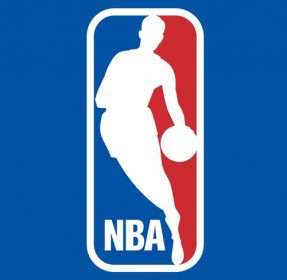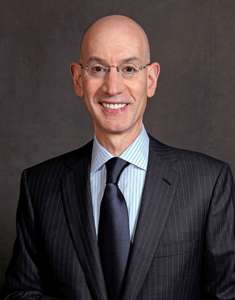NBA Commissioner Writes NY Times Op-Ed Supporting Sports Betting
Adam Silver has certainly made a name for himself in the year-plus that he has been Commissioner of the National Basketball Association (NBA). Last season, he took charge as the whole Donald Sterling fiasco threatened the league (unlike the NFL’s Roger Goodell, who can’t seem to get out of his own way). Then, this September, he spoke out in favor of legalized sports betting at the Bloomberg Sports Business Summit. While his speech made a few ripples, it did not have that great of an impact, probably because of the venue.
But now Silver has stepped up onto a much larger soapbox. Yesterday, the New York Times published an op-ed piece written by Silver himself in which he further expresses his views that sports betting should be legalized across the United States.
He starts by saying that, for the longest time, the NBA, along with the National Football League (NFL), Major League Baseball (MLB), the National Hockey League (NHL), and the National Collegiate Athletic Association (NCAA), has stood against sports betting. They supported the Professional and Amateur Sports Protection Act of 1992 (PASPA), which forbade sports betting in all states except Nevada, Oregon, Montana, and Delaware. The leagues have continued to fight against sports betting ever since, even as recently as last month, when New Jersey Governor Chris Christie signed a bill that lifted the ban against sports betting in his state. The leagues filed a motion in U.S. District Court, seeking a preliminary injunction and temporary restraining order so that the elimination of the ban would not take effect. A judge sided with the leagues and set a date of November 20th to hear arguments from both sides.
He goes on to say that even with the legal restrictions, Americans are betting on sports every day. “It is a thriving underground business that operates free from regulation or oversight,” he writes.
He continues:
There is an obvious appetite among sports fans for a safe and legal way to wager on professional sporting events. Mainstream media outlets regularly publish sports betting lines and point spreads. Voters in New Jersey overwhelmingly voiced their support for legal sports betting in a 2011 referendum. Gov. Chris Christie of New Jersey recently signed a bill authorizing sports betting at local casinos and horse racetracks, a law the N.B.A. and other leagues have opposed — and a federal court has blocked — because it violates Paspa.
Outside of the United States, sports betting and other forms of gambling are popular, widely legal and subject to regulation. In England, for example, a sports bet can be placed on a smartphone, at a stadium kiosk or even using a television remote control.
Adam Silver is being realistic, understanding that sports wagering is not only something that happens regularly around the country every day, but something that people want. As such, he says, “Congress should adopt a federal framework that allows states to authorize betting on professional sports, subject to strict regulatory requirements and technological safeguards.”
The various requirements and safeguards he seeks are things we have already seen put in place in Nevada, Delaware, and New Jersey, the three states that have legalized online poker. Silver wants a proper licensing regime to vet potential operators, age verification systems, geo-blocking technology, technology to identify and exclude problem gamblers, and responsible gaming education. He also wants something that is unique to sports betting: monitoring and reporting of unusual movements in the betting lines.
He adds, though, that he does not want sports betting legalized just for legalization’s sake. The rules and regulations must be sound.
Let me be clear: Any new approach must ensure the integrity of the game. One of my most important responsibilities as commissioner of the N.B.A. is to protect the integrity of professional basketball and preserve public confidence in the league and our sport. I oppose any course of action that would compromise these objectives.
The “integrity of the game” line is one that sports leagues have been hiding behind for decades. They believe (or want us to believe) that should sports betting become legal and widespread, that players would get influenced by deep-pocketed gamblers (or even bet on games themselves) and start influencing games to achieve the desired gambling result. The thing is, this sort of threat exists regardless and is much harder to catch without the proper systems and regulations in place. Besides, while there have been gambling scandals in the past, they are very infrequent, have rarely been shown to have a significant effect on games, and there is no evidence to suggest they resulted from legal sports betting.
Plus, in this day and age of multi-million dollar salaries, it would be nearly impossible to pay a professional athlete enough money to fix a game. It would likely take the threat of violence, but where would that threat be more likely to come from: someone using a legal betting site or someone operating in the shadows of illegality?
Hopefully, the other leagues will follow in line behind Adam Silver and the NBA and finally admit that sports betting increases interest in their games and that there is nothing wrong with allowing adults to wager a few bucks if they want. Sound regulations make for a healthier industry and would benefit both the leagues and fans alike.




















COMMENTS